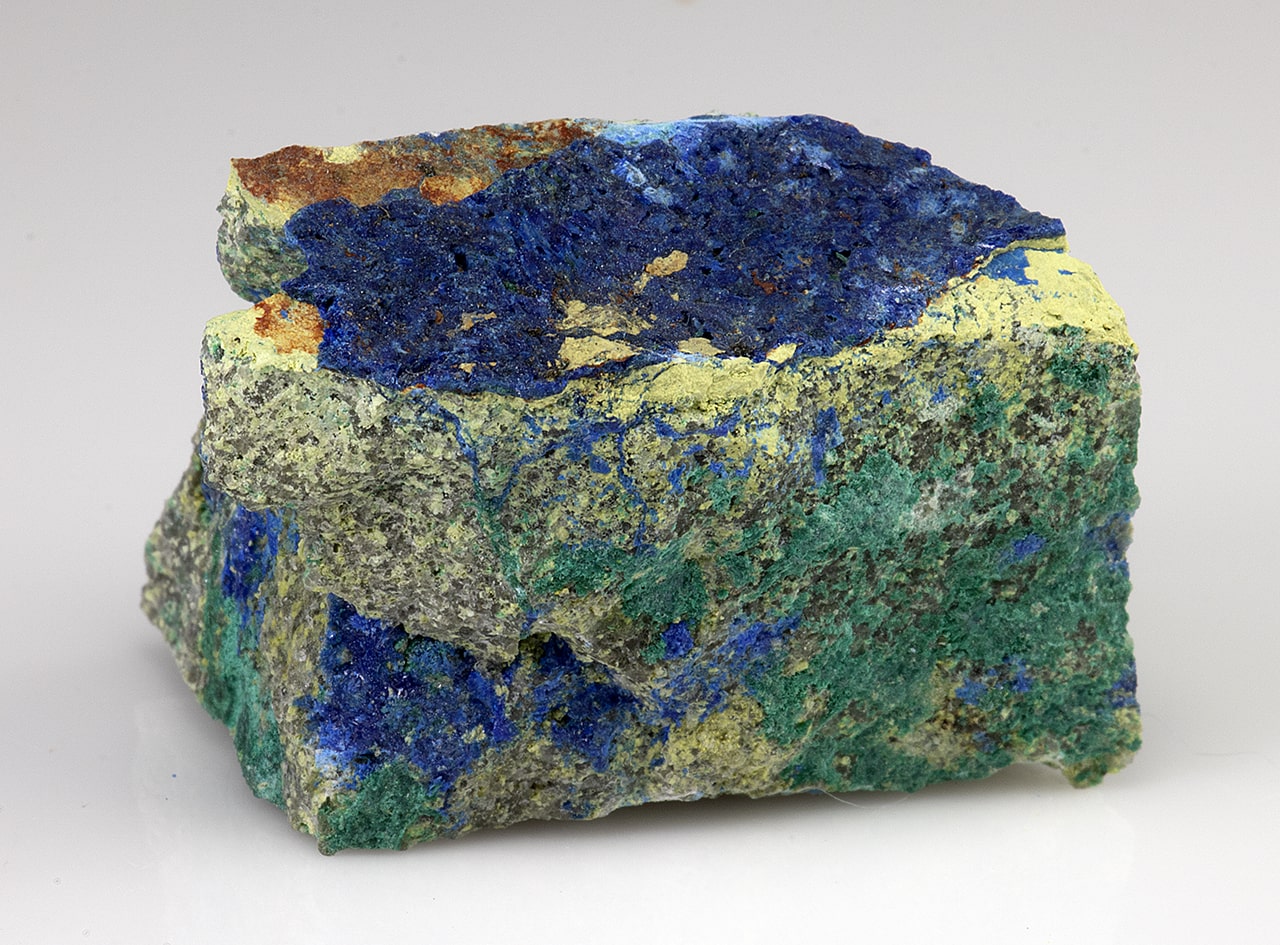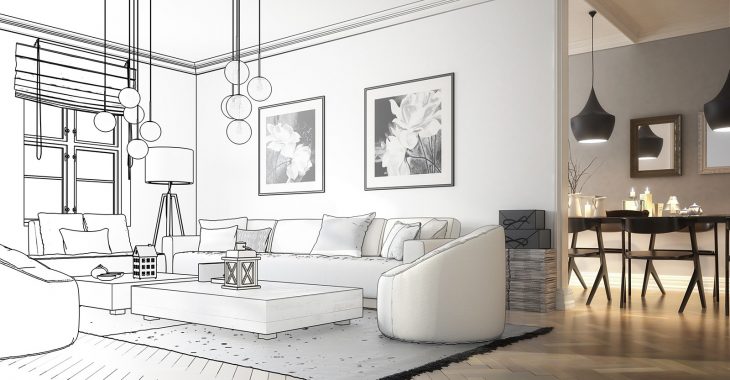
Interior design plays a crucial role in shaping the ambiance, functionality, and aesthetic appeal of a space. From residential homes to commercial establishments, interior design has the power to transform any environment into a captivating and functional haven. In this article, we will explore 18 fascinating facts about interior design that will broaden your understanding and appreciation for this remarkable field. So, let’s dive in!
Interior Design: Defined and Explored
Interior design encompasses the art and science of enhancing the interior of a space to achieve a harmonious and functional environment. It involves the careful selection and arrangement of elements such as colors, textures, furniture, lighting, and accessories to create a cohesive and visually appealing space.
The History of Interior Design
The history of interior design dates back centuries, with evidence of its existence found in ancient civilizations like Egypt, Greece, and Rome. Over time, different design styles and movements emerged, reflecting the cultural and societal changes of each era.
Popular Interior Design Styles
There are numerous interior design styles that have gained popularity over the years. Some of the most prominent ones include:
Modern: Emphasizes simplicity, clean lines, and minimalism.
Traditional: Draws inspiration from classic European designs, featuring ornate details and rich colors.
Contemporary: Characterized by a blend of modern and traditional elements, with a focus on neutral colors and sleek lines.
Industrial: Incorporates raw materials, exposed pipes, and unfinished textures to create a rugged, urban look.
Scandinavian: Known for its simplicity, functionality, and use of light colors and natural materials.
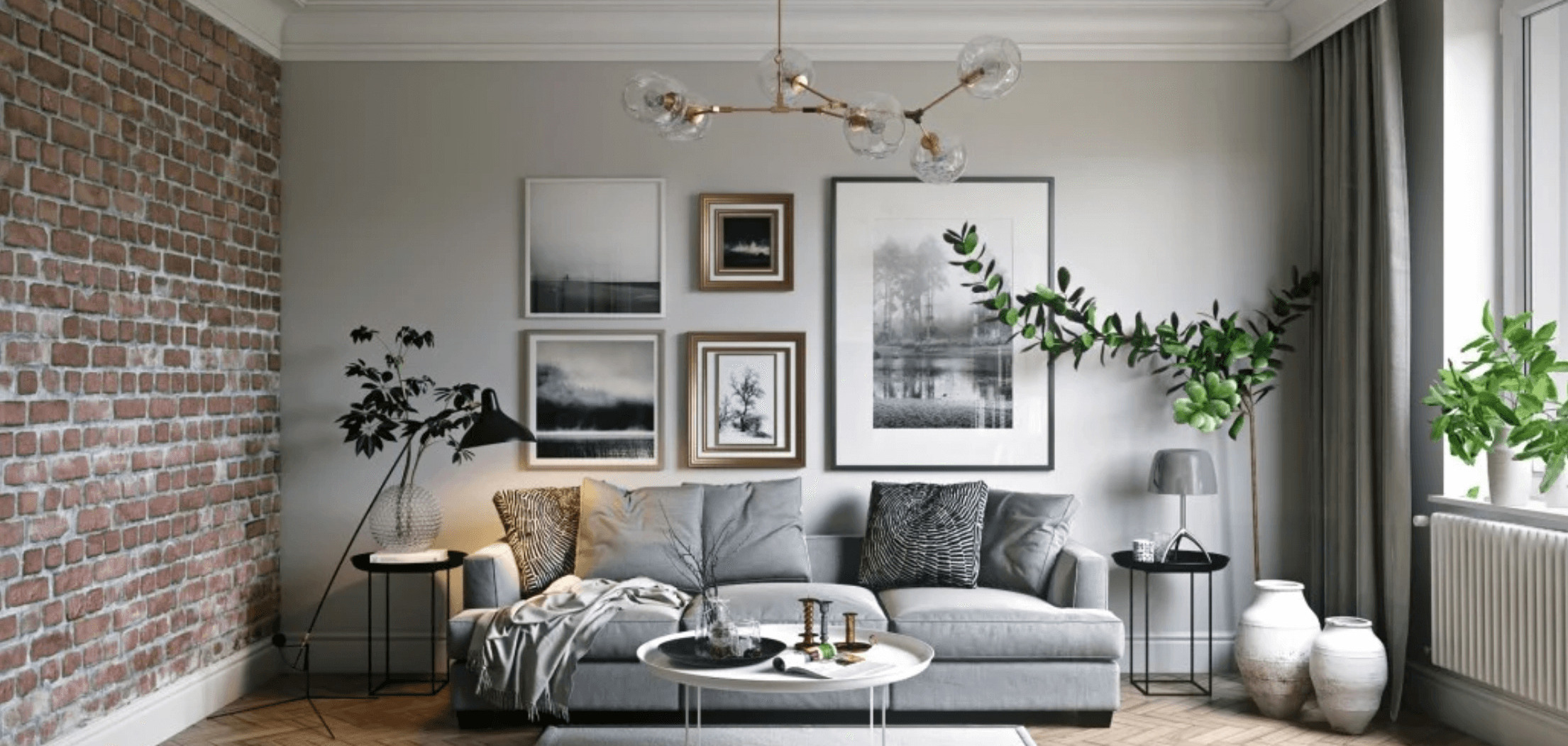
The Role of Color in Interior Design
Color plays a crucial role in interior design, as it has the power to evoke emotions, create visual interest, and influence the perception of space. Different colors can convey various moods and atmospheres. For example:
Blue: Promotes calmness and tranquility, making it suitable for bedrooms and relaxation areas.
Red: Evokes energy and stimulates conversation, making it ideal for social spaces like dining rooms.
Yellow: Radiates happiness and positivity, making it suitable for areas where creativity and inspiration are desired, such as home offices or creative studios.
The Impact of Lighting
Lighting is a fundamental aspect of interior design that greatly affects the ambiance and functionality of a space. Proper lighting enhances visibility, highlights architectural features, and sets the mood. There are three primary types of lighting used in interior design:
Ambient Lighting: Provides overall illumination and sets the general mood of a space.
Task Lighting: Offers focused lighting for specific activities, such as reading or cooking.
Accent Lighting: Highlights particular areas or objects, creating visual interest and drama.
The Art of Space Planning
Space planning is a critical aspect of interior design that involves the strategic arrangement of furniture, fixtures, and other elements to optimize functionality and flow within a space. Effective space planning ensures that each area serves its purpose while maintaining a harmonious balance.
The Importance of Texture
Texture adds depth and tactile interest to an interior space. By incorporating various textures, such as smooth, rough, soft, or shiny surfaces, interior designers can create a multi-dimensional experience that engages the senses and adds visual appeal.
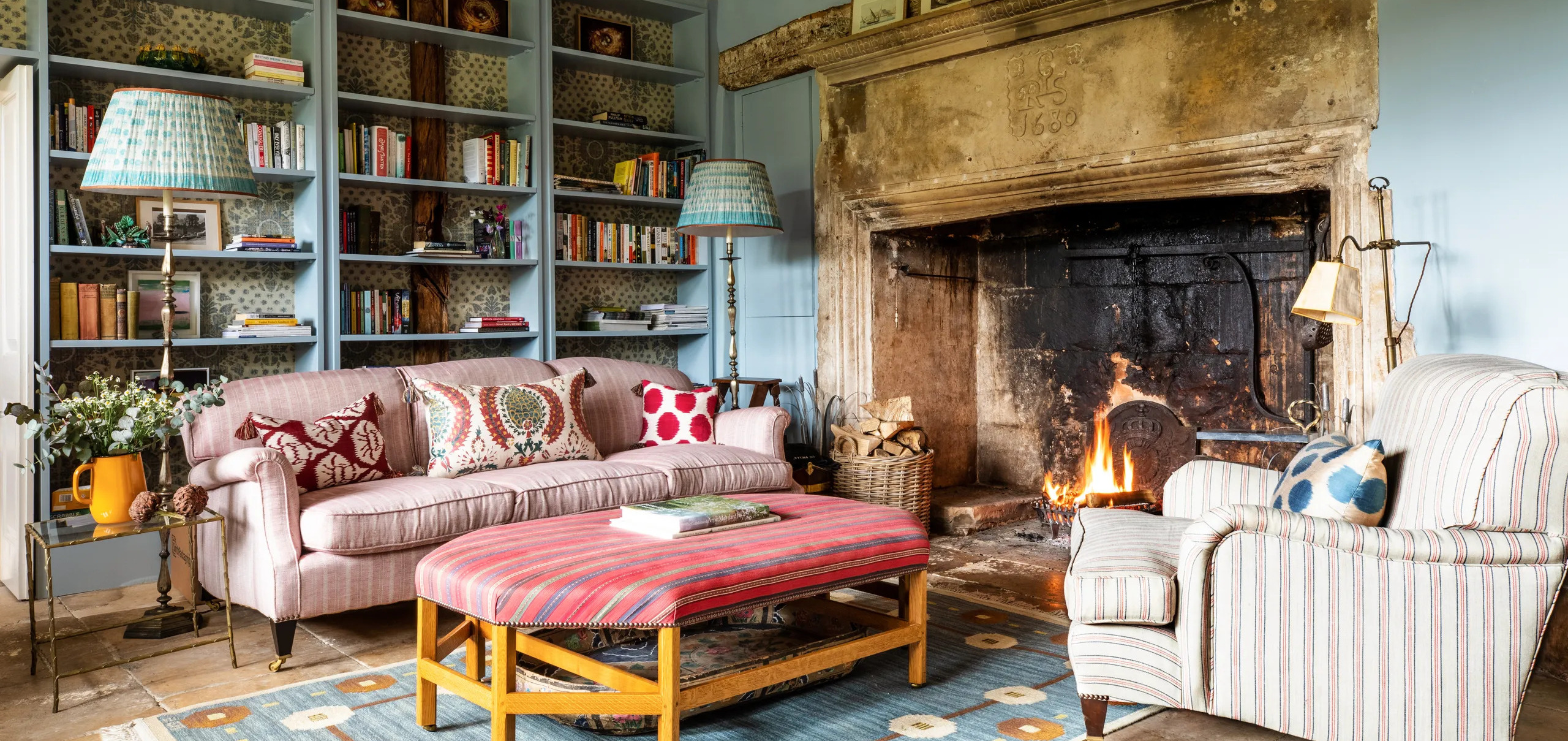
Sustainable Interior Design
As environmental consciousness continues to rise, sustainable interior design has gained significant traction. Designers now prioritize using eco-friendly materials, incorporating energy-efficient lighting, and implementing sustainable practices to reduce the environmental impact of their projects.
The Role of Interior Design in Well-being
Interior design can have a profound impact on our well-being. Thoughtfully designed spaces can enhance comfort, reduce stress, promote productivity, and improve the overall quality of life. Elements such as natural light, ergonomic furniture, and biophilic design (integrating nature into interiors) contribute to creating healthier and more nurturing environments.
The Influence of Technology
Technology has revolutionized interior design, providing designers with innovative tools and resources to visualize and implement their ideas. Computer-aided design (CAD) software allows for precise planning and 3D modeling, while virtual reality (VR) and augmented reality (AR) enable clients to experience and interact with virtual spaces before construction or renovation begins.
The Versatility of Interior Design Careers
A career in interior design offers a wide range of opportunities and specialties. Interior designers can work in residential design, commercial design, hospitality design, and even specialize in specific areas like kitchen and bathroom design, sustainable design, or historic preservation.
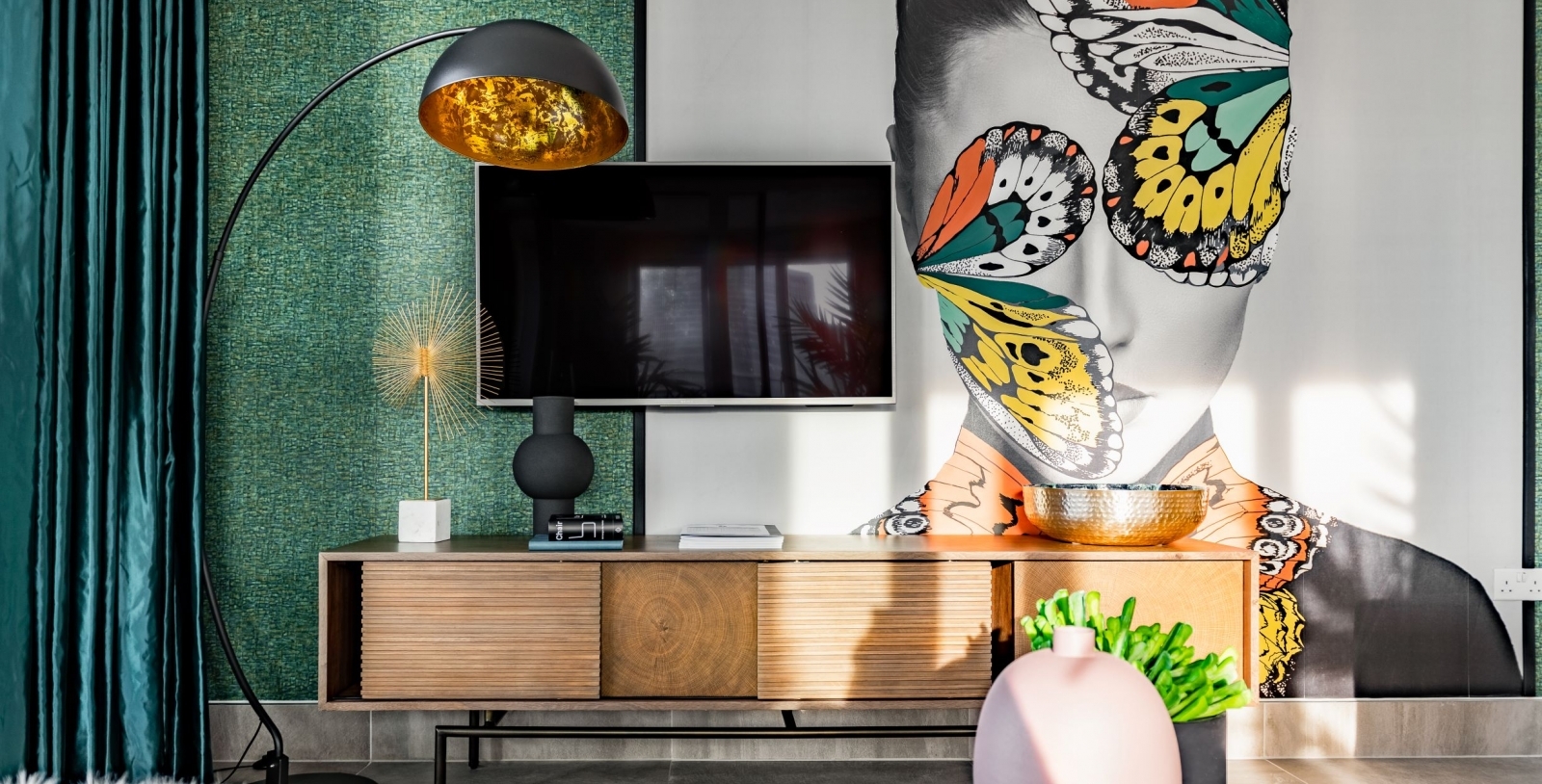
The Power of Art in Interior Design
Art plays a significant role in interior design, adding a personal and unique touch to a space. Whether it’s a large statement piece or a collection of smaller artworks, art can evoke emotions, spark conversations, and tie together the overall design concept.
The Influence of Culture and Heritage
Interior design often reflects the cultural and historical heritage of a particular region. Different cultures have distinct design aesthetics, materials, and motifs that are celebrated and incorporated into interior spaces. From Asian-inspired Zen gardens to African tribal patterns, cultural influences shape and enrich the world of interior design.
The Rise of Smart Homes
With the advancement of technology, smart homes have become increasingly popular. Interior design now integrates smart devices and automation systems that offer convenience, energy efficiency, and enhanced security. From voice-controlled lighting to automated window treatments, these features are transforming the way we interact with our living spaces.
The Importance of Ergonomics
Ergonomics focuses on designing spaces and products that prioritize human comfort and well-being. Interior designers consider ergonomics when selecting furniture, designing workspaces, and creating environments that promote proper posture, reduce physical strain, and improve overall functionality.
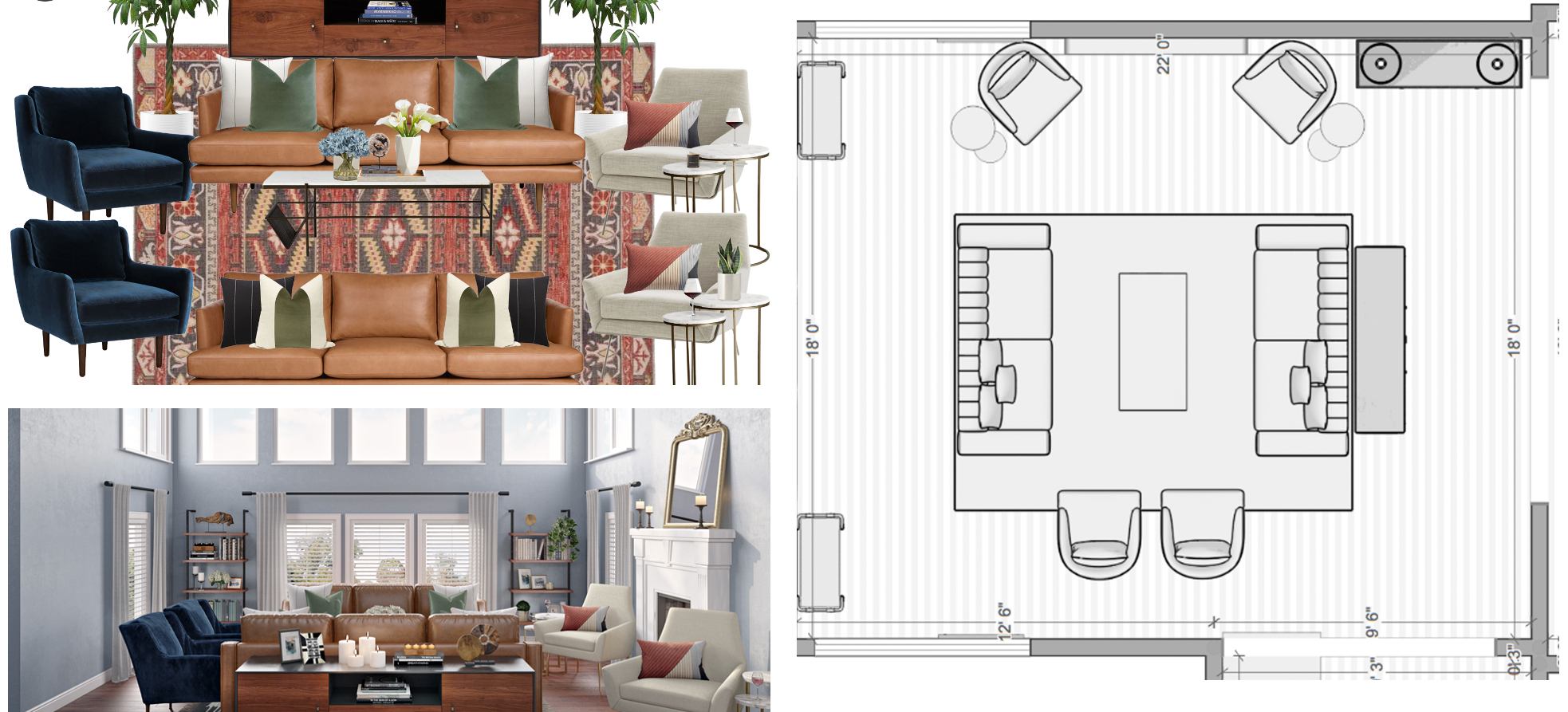
The Role of Interior Design in Branding
Commercial interior design plays a vital role in branding and marketing. Through strategic design choices, businesses can create memorable and immersive experiences that align with their brand identity. From the layout of a retail store to the colors and materials used in a corporate office, interior design helps reinforce a brand’s message and values.
Interior Design vs. Interior Decorating
While interior design and interior decorating are often used interchangeably, they are distinct disciplines. Interior design focuses on the overall planning and functionality of a space, including structural changes and space optimization. Interior decorating, on the other hand, primarily deals with the aesthetics and embellishment of an existing space, such as selecting furniture, fabrics, and accessories.
The Future of Interior Design
As we look ahead, several trends and innovations are shaping the future of interior design. These include the integration of sustainable practices, the use of biophilic design to bring nature indoors, the incorporation of smart technology, and the emergence of flexible and adaptable spaces to accommodate changing needs.
Conclusion
Interior design is a captivating and dynamic field that combines creativity, functionality, and aesthetics to transform spaces into inviting and purposeful environments. From the strategic arrangement of furniture to the careful selection of colors and materials, every element contributes to creating unique and harmonious spaces. Whether you’re designing your dream home or revamping a commercial establishment, understanding these 18 facts about interior design will empower you to make informed and inspired design choices.
Frequently Asked Questions (FAQs)
How much does hiring an interior designer typically cost?
The cost of hiring an interior designer varies depending on several factors, such as the scope of the project, the designer’s experience, and your location. Some designers charge a flat fee, while others work on an hourly basis or a percentage of the total project cost. It’s best to discuss the pricing structure and budget with the designer during the initial consultation.
How long does an interior design project usually take?
The duration of an interior design project depends on its complexity and scale. A small residential project may take a few weeks to a couple of months, while larger commercial projects can span several months or even years. Timelines are also influenced by factors such as client approvals, availability of materials, and coordination with contractors.
How can I incorporate my personal style into interior design?
Incorporating your personal style into interior design is essential to create a space that feels like home. Start by gathering inspiration from magazines, online platforms, or visiting showrooms. Consider your favorite colors, textures, and patterns, and look for ways to infuse them into the design. Collaborating with an interior designer can help you translate your vision into a cohesive and well-executed design.
What are some cost-effective ways to update my interior design?
If you’re working with a limited budget, there are several cost-effective ways to update your interior design. Consider repainting walls, rearranging furniture, and incorporating new accessories such as throw pillows, rugs, or artwork. Upcycling and refurbishing existing furniture can also give a fresh look to your space without breaking the bank.
How can I make a small space appear larger through interior design?
To make a small space appear larger, you can employ several design techniques. Opt for light and neutral colors to create an illusion of openness. Use mirrors strategically to reflect light and give the impression of more space.
Was this page helpful?
Our commitment to delivering trustworthy and engaging content is at the heart of what we do. Each fact on our site is contributed by real users like you, bringing a wealth of diverse insights and information. To ensure the highest standards of accuracy and reliability, our dedicated editors meticulously review each submission. This process guarantees that the facts we share are not only fascinating but also credible. Trust in our commitment to quality and authenticity as you explore and learn with us.

